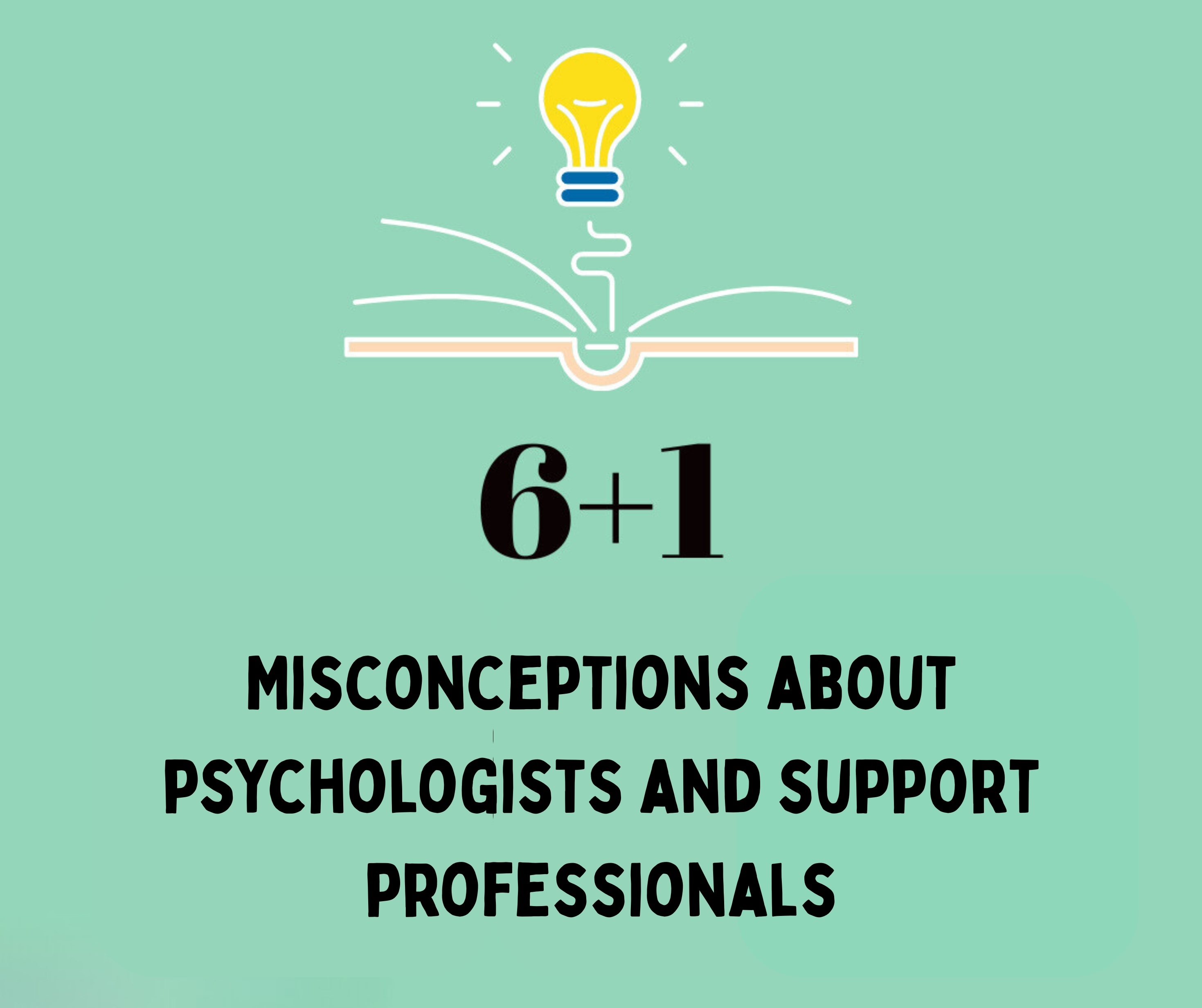Karrier- és Hallgatói Szolgáltatóközpont
6+1 Misconceptions about psychologists and supporting professionals
 When someone hears the word "psychologist", many questions, thoughts and even misconceptions may arise. So we've put together some of them to help you find your way around and, with this knowledge, be more confident when you need help.
When someone hears the word "psychologist", many questions, thoughts and even misconceptions may arise. So we've put together some of them to help you find your way around and, with this knowledge, be more confident when you need help.
They analyze everyone.
This misconception goes beyond the contemplation of mind-reading skills: it is rather characterized by suspicion. The "analysis" or rather the one-way attention that psychologists pay to a client can be very tiring in the long run. This is why we no longer use this method of working in conversations with family and friends. However, it is true that professional knowledge can provide a useful insight into everyday situations and problems.
Their job is all about talking.
Going back to the explanation of the previous misconception, one of the tools of the psychologist is indeed conversations alongside non-verbal techniques. However, in addition to individual sessions, psychologists also carry out other types of activities: group counselling, trainings, research, scientific publications, recording and evaluating tests, conducting expert assessments, writing expert opinions and much more.
Talking to a friend is the same as talking to a helping professional..
Friendships and conversations are extremely important in people's lives. However, it is important to highlight the differences between a friendly conversation and a supportive conversation with a professional.
The therapist focuses only on you and your problem. They are trained conversationalists who ask the right and necessary questions. Can remain objective, are bound by confidentiality, boundaries and frameworks are clear.
However, with friends, both parties' problems can be discussed, and their opinions are never objective, because of the emotional bond between them. Friendship is a much less stable relationship: it can change, transform and evolve. Furthermore, issues and difficulties may arise that you would not want to share even with your best friend.
Going to a psychologist is expensive.
This misconception is partly true. In the private sector, you may indeed face high fees, but it is important to remember that you are not only paying for the price of a 50-minute session, but also for the professional's years of training, experience, expertise and the physical conditions behind it. At the same time, there are several free opportunities available: for example, students of the University of Pannonia can use the 6-10 sessions provided by the Centre for Student Services and Career free of charge with the assistance of the University of Pannonia's supporting professionals.
https://karrierkozpont.uni-pannon.hu/en/psychological-counselling
It is only worth seeing a professional if you are in an extremely difficult situation.
The stereotype that only people with mental health problems go to a psychologist ("I'm not crazy!") seems to be disappearing from the public consciousness. But the misconception still persists that you only need to see a professional if you have a "big problem". First, it is important to clarify that there is no definition of "big problem" and that there is no hierarchy of problems. Everyone has different experiences. At the same time, we can turn to professionals when our lives are going well but we would like to improve our self-awareness and manage our daily lives more effectively.
They tell you the right solution, give you concrete advice.
The word ' consultation' is more precise than 'advice'. The professional helps you to find your own solutions to your difficulties. They guide the process, keep you focused, use tools that give you a broader view of your problem. They never tell you point by point what you should do; they don't judge or criticize.
+1 Psychiatrist? A psychologist? What is the difference?
In everyday language, the two terms are often confused or used synonymously. Yet the difference is very significant. Psychiatrists are medical doctors: they specialize in psychiatry after five years of general medical training, just as others specialize in cardiology or internal medicine. So, psychiatrists can also prescribe medication to complement therapy.
Psychologists, on the other hand, are philosophers: they study social sciences. They become licensed psychologists after five years of university training, and can specialize in clinical, counselling, work, sport or other areas. Their methods are varied and include verbal and non-verbal techniques. The two professionals often work together, in consultation with each other, as both are needed in certain cases.


